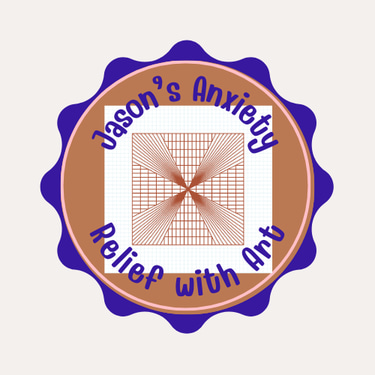Understanding Modern Anxiety: Why Our Brains Are Wired to Worry
7/23/20252 min read


Introduction: The Anxieties of Modern Life
In the fast-paced world we live in today, it’s no surprise that anxiety levels are on the rise. Our modern lifestyles are filled with worries that many of our ancestors never faced. While concerns about technology, security breaches, and identity theft frequently top the list of anxieties, there is another aspect that contributes to this growing unease. Surprisingly, ancient instincts for survival are still hardwired into our brains, creating a disconnect between the dangers we actually face and how we perceive them.
The Evolutionary Perspective on Fear
Human brains are designed to respond to threats; a feature that was essential in ancient times when dangers such as wild animals or hostile tribes were constant. Our ancestors needed to be hyper-aware of their surroundings to survive. Today, however, the daily threats we encounter are vastly different. Instead of having to worry about tigers lurking in the bushes, we often fret over more abstract issues such as job security or social acceptance. Yet, the brain's alerts remain activated, preserving the instinct to seek safety even in a relatively secure environment.
Modern Triggers of Anxiety
As our lives become more intertwined with technology, the sources of anxiety have shifted but still abound. Whether it’s worrying that someone might steal your password or gnawing over the impact of negative comments on social media, these modern triggers can amplify our stress levels. With the unending streams of information inundating our minds, our brains can have difficulty shutting down these alarms—often leading to unnecessary worry. In essence, the natural response to threats can be counterproductive in today’s context, where many risks are more theoretical than tangible.
Coping with Ingrained Anxiety
So, what can we do about this ancient wiring that evokes modern anxiety? Awareness is the first step. Recognizing that these feelings of fear and worry are often influenced by our evolutionary instincts can help us navigate them more effectively. Developing relaxation techniques such as mindfulness and meditation can also play a crucial role in reprogramming our response to perceived threats. By calming our minds and centering our thoughts, we can create a buffer against unnecessary anxiety, allowing us to focus on the present rather than hypothetical dangers.
Conclusion: A Path Forward
In conclusion, while modern life certainly brings about unique anxieties, understanding the bridge between our evolutionary programming and contemporary challenges can empower us. As we learn to manage our responses to stress, we can work towards a more balanced mental state. By fostering awareness and applying coping strategies, we can break free from the burdens of excessive worry and live more fulfilled lives, despite the modern world’s inherent stresses.
